Filter by

Decision science for future Earth : theory and practice
This open access book provides a theoretical framework and case studies on decision science for regional sustainability by integrating the natural and social sciences. The cases discussed include solution-oriented transdisciplinary studies on the environment, disasters, health, governance and human cooperation. Based on these case studies and comprehensive reviews of relevant works, including l…
- Edition
- 1
- ISBN/ISSN
- 9789811586323
- Collation
- xi, 251p. : ill.
- Series Title
- -
- Call Number
- 338.927 DEC d

Overwhelmed by overflows? : How people and organizations create and manage ex…
This transdisciplinary volume investigates the ways in which people and organisations deal with the overflow of information, goods or choices. It explores two main themes: the emergence of overflows and the management of overflows, in the sense of either controlling or coping with them. Individual chapters show the management of overflows taking place in various social settings, periods and pol…
- Edition
- -
- ISBN/ISSN
- 9789198469813
- Collation
- xi, 212p : ill.
- Series Title
- -
- Call Number
- 658.403 CZA o

Application of decision science in business and management
Application of Decision Science in Business and Management is a book where each chapter has been contributed by a different author(s). The chapters introduce and demonstrate a decision-making theory to practice case studies. It demonstrates key results for each sector with diverse real-world case studies. Theory is accompanied by relevant analysis techniques, with a progressive approach buildin…
- Edition
- -
- ISBN/ISSN
- 9781838807641
- Collation
- 234p.
- Series Title
- -
- Call Number
- 658.403 PED a
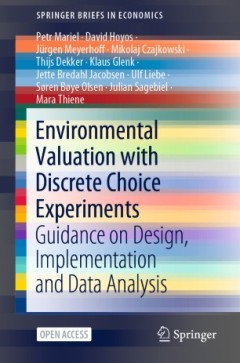
Environmental valuation with discrete choice experiments : guidance on design…
This open access book offers up-to-date advice and practical guidance on how to undertake a discrete choice experiment as a tool for environmental valuation. It discusses crucial issues in designing, implementing and analysing choice experiments. Compiled by leading experts in the field, the book promotes discrete choice analysis in environmental valuation through a more solid scientific basis …
- Edition
- -
- ISBN/ISSN
- 9783030626693
- Collation
- xiii, 129p. : ill.
- Series Title
- -
- Call Number
- 333.7 ENV e
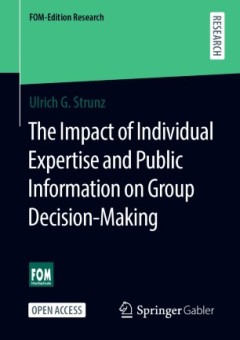
The impact of individual expertise and public information on group decision-m…
In this open-access-book the author concludes that expertise could be the key factor for global and interconnected problems. Experimental results have shown that expertise was a stronger predictor than public information regarding change in behavior and strategy adaption. Identifying non-routine problem-solving experts by efficient online assessments could lead to less volatile system performan…
- Edition
- -
- ISBN/ISSN
- 9783658331399
- Collation
- xviii, 185p. : ill.
- Series Title
- -
- Call Number
- 658.4036 STR i
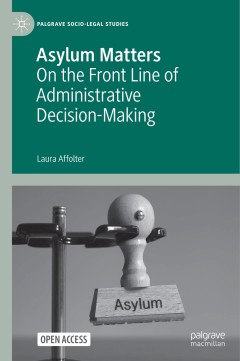
Asylum matters : on the front line of administrative decision-making
This open access book examines everyday practices in an asylum administration. Asylum decisions are often criticised as being ‘subjective’ or ‘arbitrary’. Asylum Matters turns this claim on its head. Through the ethnographic study of asylum decision-making in the Swiss Secretariat for Migration, the book shows how regularities in administrative practice and ‘socialised subjectivity’…
- Edition
- -
- ISBN/ISSN
- 9783030615123
- Collation
- xvii, 203p. : ill.
- Series Title
- -
- Call Number
- 342.494083 AFF a
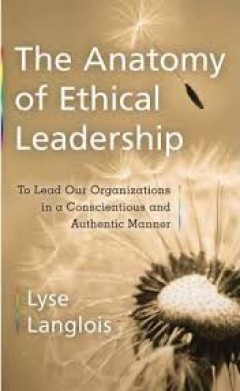
Anatomy of ethical leadership: to lead our organizations in a conscientious a…
Performance at all costs, productivity without regard to consequences, and a competitive work environment: these are the ethical factors discussed in The Anatomy of Ethical Leadership, which highlights issues in workplace culture while looking into a brighter future for labour ethics. Langlois maintains that an enhanced awareness of the process of ethical decision making in difficult situations…
- Edition
- -
- ISBN/ISSN
- 9781897425749
- Collation
- xv, 120 p. : ill. ; 23 cm.
- Series Title
- Labour across borders series
- Call Number
- 174.4 ANA a

Fading foundations : probability and the regress problem
This book addresses the age-old problem of infinite regresses in epistemology. How can we ever come to know something if knowing requires having good reasons, and reasons can only be good if they are backed by good reasons in turn? The problem has puzzled philosophers ever since antiquity, giving rise to what is often called Agrippa's Trilemma. The current volume approaches the old problem in a…
- Edition
- -
- ISBN/ISSN
- 9783319582955
- Collation
- xi, 238p. : ill.
- Series Title
- -
- Call Number
- 121 ATK f
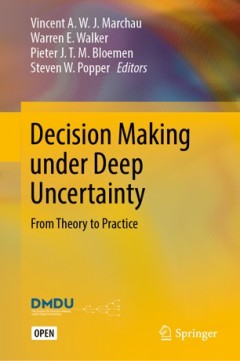
Decision making under deep uncertainty : from theory to practice
This open access book focuses on both the theory and practice associated with the tools and approaches for decisionmaking in the face of deep uncertainty. It explores approaches and tools supporting the design of strategic plans under deep uncertainty, and their testing in the real world, including barriers and enablers for their use in practice. The book broadens traditional approaches and too…
- Edition
- -
- ISBN/ISSN
- 9783030052522
- Collation
- xiv, 405p. : ill.
- Series Title
- -
- Call Number
- 658.40301 DEC d
 Computer Science, Information & General Works
Computer Science, Information & General Works  Philosophy & Psychology
Philosophy & Psychology  Religion
Religion  Social Sciences
Social Sciences  Language
Language  Pure Science
Pure Science  Applied Sciences
Applied Sciences  Art & Recreation
Art & Recreation  Literature
Literature  History & Geography
History & Geography